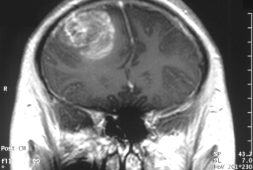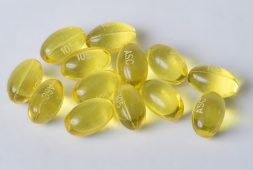
Parkinson’s disease (PD) occurs when nerve cells in an area of the brain that controls movement become impaired or die. Usually, patients begin to develop Parkinson’s at the age of 60, but it can happen to younger people. Many people diagnosed with PD can live up to 20 years after the diagnosis. Unfortunately, the 2 major causes of deaths are falls and pneumonia. PD patients are at a higher risk of falling, and serious falls that require surgery can lead to infection, blood clots from immobility, and heart failure. They are also at a higher risk for aspiration pneumonia.
The gut microbiome, or bacteria, influences many systems of the body. A study finds that Parkinson’s disease is linked to changes in the composition of the gut microbiome. In Parkinson’s disease, the ability of the gut bacteria to break down fat is altered, making it harder to regulate bile acid production. Disruptions in bile acid production could be a probable indicator of the condition.
A new study by researchers investigates the relationship of the gut microbiome and PD. The gut bacteria can create neurochemicals like serotonin, and communicate with the central nervous system. It may also influence dementia and autism. According to Dr. Peipei Li, a former postdoctoral fellow at Van Andel Institute and the study’s lead author, “It’s becoming increasingly clear that gut health has tight links with brain health.” He continues, “Our findings provide exciting new opportunities for better understanding this relationship and possibly for developing new ways to diagnose – and even treat Parkinson’s.”
Researchers focus on the appendix
The researchers collected tissue samples of the liver, ileum, and appendix – all which play a role in bile acid production, from people with Parkinson’s, and a control group without the condition. Bile is a fluid manufactured in the liver and stored in the gallbladder. It is released into the intestines to break down fats after someone eats. One of the key components that help break down fats are the bile salts.
The research team discovered that the appendixes of those with the condition had higher levels ofPeptostreptococcaceae, Lachnospiraceae, and Burkholderiales. “Burkholderia has also been reported to infect the brain. Of particular interest, Burkholderia species encode the rate-limiting enzyme for secondary bile acid synthesis, highlighting the fact that the appendix microbiome of people with Parkinson’s disease has an enrichment of microbiota that metabolizes bile acids,” they wrote.
In addition,the appendixes of those with PD also showed decreased Clostridium, Methanobacteriales, Escherichia, Odoribacter, and unclassified Sutterellaceae.
The authors also wrote, “Bacterial species responsible for the production of secondary bile acids in the large intestine were elevated in the [Parkinson’s disease] appendix.” Due to the microbiome alterations, they looked to see if PD was associated with changes in microbial metabolic pathways in the appendix. They discovered the most significant change was an impaired lipid metabolism and a loss of fatty acid metabolism. Because of these, the team also tested whether the proteins involved in the metabolic pathways were also altered in the appendix and ileum.
The appendix and ileum of those with PD showed a decrease in proteins affecting lipid metabolism. Plus there was impairment in the pathways involved in other cellular activity, like protein localization, glycolysis, antigen presentation, and immune activity.
Increase bile acids
The team also found changes in the microbiota involved in bile acid production upon looking at the appendix. While bile acids are manufactured in the liver, they work in the small intestine to break down fat and absorb essential nutrients for the body. The liver synthesizes primary bile acids from cholesterol.
15 bile acids from the PD group and 12 bile acids from the control group were studied. The appendixes from the PD group had significantly increased secondary bile acids, typically created by gut microbes. The results showed an 18.7-fold increase in lithocholic acid and a 5.6-fold increase in deoxycholic acid. In elevated concentrations, both are toxic to cells. In the ileum, while there were no changes in primary bile acid concentration, there was a 3.6-fold increase in lithocholic and deoxycholic acid.
The next step was to find out if PD also genetically affected bile acid production. In the ileum of those with the condition, the team found higher levels of gene transcripts that usually regulate bile acid and cholesterol homeostasis. The authors suggest the Parkinson’s could be disrupting bile acid control, regulating cholesterol levels, and overall fat metabolism.
Limitation of the study
Like the classic chicken and egg situation, the researchers can’t say whether the microbiota changes caused Parkinson’s, or were the result of it. The authors write that constipation is a common symptom of Parkinson’s, which could have altered the microbiome. Yet, they also note that constipation may not stay long enough in the body to change the microbiome significantly. “Though we cannot exclude constipation as a contributing factor, it is unlikely to explain all the changes observed, since increases in both [lithocholic acid and deoxycholic acid] increase colonic peristalsis, which decrease the fecal transit time.”
Based on the findings of the study, the team suggests pursuing treatments that involve bile acids and the appendix microbiome for people with PD. co-author of the study Dr. Stewart Graham, director of Metabolomics Research at Beaumont Health, says, “We demonstrated that not only was there a significant shift in the bile acid metabolism due to changes we induced in the brain, but that these compounds have the potential to be used as early blood-based biomarkers of the disease. This is extremely important as this is when treatments are believed to be most effective.”
A proposal is suggested for microbiome transplantation for Parkinson’s disease, with others focusing on stopping the loss of bile acid control. “In addition, preventing the damaging effects of [lithocholic acid and deoxycholic acid] with the hydrophilic, anti-inflammatory bile acid UDCA could benefit people with Parkinson’s disease,” the authors add.



